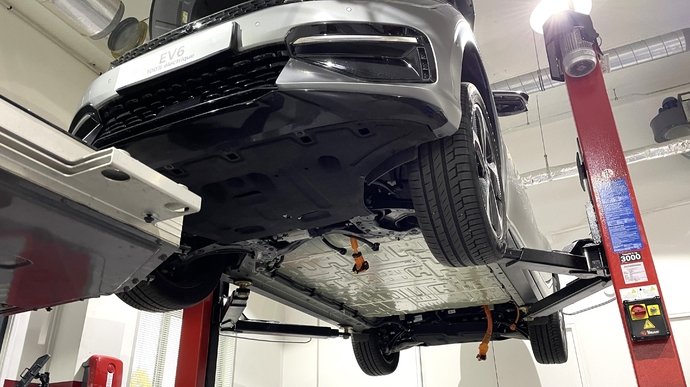Repairing An EV Is 30% More Expensive On Average Than An ICE Vehicle. Here’s Why

You’ve seen the horror stories about the substantial repair costs for electric vehicles. Let's recall the tens of thousands of dollars for small dents or total losses caused by sub-$10 parts that can’t be sourced.
While these are true, they’re a drop in the ocean. The bigger picture is that EVs are not declared total losses by insurance companies at higher rates than comparable combustion vehicles. However, the average repair costs are higher. Here’s what the data says.
According to San Diego-based Mitchell, which processes tens of millions of transactions for more than 300 insurance providers and 20,000 collision repair facilities, EVs were written off as a total loss 9.93% of the time in the first quarter of this year in the United States.
That’s 8% more than in Q4 2023 and 30% more compared to Q3 2023, but today’s total loss rate is nearly identical to internal combustion cars. In the U.S., 9.51% of gasoline-powered 2021 models and newer were declared total losses.
It’s when we get to cars that can be repaired that things get a bit more costly. Mitchell said in its latest report that claims for EVs are still higher than ICE vehicles. In Q1 2024, the average repair bill for an EV in the U.S., including Tesla models, was $6,066. That’s 29% or $1,363 more than the average severity for ICE vehicles.
The number of EV drivers who needed repairs on their EVs also rose dramatically in the first quarter of this year as the number of EVs on the road increased. The frequency of EV repairable claims was 2.26% in the last quarter, 40% more than in Q1 2023.
The biggest reason for the repair cost disparity comes down to the number of mechanical labor hours. According to Mitchell, the average number of hours that pop up on the repair estimates for EVs is 3.04, while ICE vehicles have an average of 1.66 hours. That’s almost double, and with the average mechanical labor rate for the U.S. above $100 per hour, it quickly adds up.
The insurance analytics firm mentioned in its report that the extra EV labor hours are likely due to the management of the high-voltage battery, which sometimes needs to be de-energized and removed from the vehicle before doing any collision repairs.
Other factors that hike up the average repair cost of EVs are the higher rate at which repair shops need to go for a new OEM part and the lower rate at which EV parts can be repaired. According to Mitchell, 89.29% of parts fitted to damaged EVs were OEM, while ICE vehicles get that figure down to 65.14%. The company stated that this difference is because ICE vehicles benefit from a more extensive variety of recycled and repaired parts compared to EVs.
Regarding the cars with the most repairable claims, the Tesla Model 3 takes the top spot in the United States, with 32.55% of claims, followed by its crossover sibling, the Tesla Model Y, with 25.58%.
The Ford Mustang Mach-E is in third place with 7.72% of repairable claims, while the more expensive and increasingly slow-selling Tesla Model S (6.4%) and Tesla Model X (4.61%) round out the top 5.
Related News
